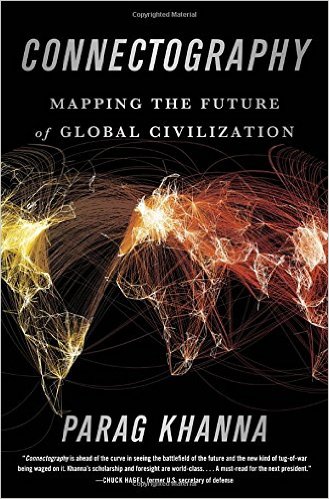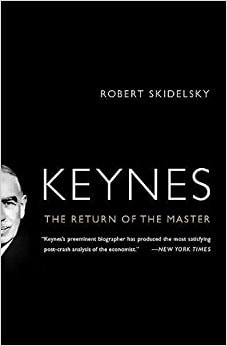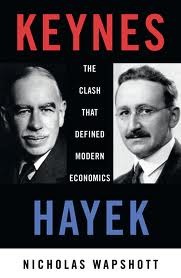|
Connectography: Mapping the Future of Global Civilization
by Parag Khanna Published in April 2016 496 Pages Thibault’s Score: 5/5 Connectography is an amazing book, and might as well be the manifesto of the Startup Societies Foundation. The central point of the book is that connection and supply lines matters a lot more than the geography of borders than it used to. He spends a lot time highlighting the importance of infrastructure that ties nations together. The wars, conflicts, friendships, and fortunes of tomorrow will be determined by the infrastructure of today. Khanna repeatedly makes very interesting arguments. He makes a strong case for political decentralization and localization as a solution to solving various emotional and violent conflicts around the world. He argues that many conflicts between states can be solved through secession and devolution of power. He covers many of the topics that I have been very interested in over the last few years. I strongly recommend this book to everyone.
0 Comments
Keynes: The Return of the Master
by Robert Skidelsky Published in late 2009 256 Pages Thibault’s Score: 3/5 Keynes is a 20th century economist who argued that reducing interest rates and increasing government infrastructure spending could help smooth out recessions which are a natural byproduct of capitalism. This book was exactly what I expected and nothing more. It outlined Keyne’s biography and life story while simultaneously explaining his most important ideas. “Keynes: The Return of the Master” was much better than the other book about Keynes that I recently reviewed called: “Keynes vs Hayek.” Skidelsky opens the book by explaining the 2008 recession from a Keynesian point of view. He then uses this explanation to introduce numerous basic Keynesian ideas and the character of Keynes. While Skidelsky spends some time dwelling into Keyne’s personal life, he wastes no time getting into the crux of Keyne’s economic theories. Here are 5 interesting facts that I learned: 1. Uncertainty is the basis for most Keynesian principles 2. Keynes thought that economics was impossible to predict on a fundamental level 3. Republicans like Nixon and Reagan implemented many of Keyne’s ideas 4. Keynes thought that the purpose of economics was to help poor people instead of maximizing efficiency 5. Keynes was pro-capitalism and pro-market by today’s standards and would probably (ironically) be a Republican today I think that while libertarians have vilified Keynes and unjustly depicted him as a communist plotting to slowly bring about the people’s state, the author, Skidelsky is an uncritical devotee. He spends a lot of ink praising Keynes and brushes past all of Keyne’s personal moral failings and, more importantly, the shortcomings in Keyne’s theory. Overall, this book wasn’t great, nor did it perfectly explain Keynes, but it certainly helped broaden my economic perspective. I wouldn’t recommend this book but don’t regret reading it. Keynes Vs Hayek: The Clash that Defined Modern Economics
by Nicholas Whapshott Published in September 2012 400 Pages Thibault’s Score: 3/5 I was a bit disappointed with Keynes vs Hayek because I was hoping for a theoretical book on economics which explained and contrasted the two opposing theories of Keynes and Hayek. This book is actually a biography about Keynes and Hayek. Despite the fact that I entered the book with incorrect expectations, I throughly enjoyed what I read. The author recounts the lives of Keynes and Hayek, and explains how the two have, at different times, clashed. To anyone who is very interested in the life stories of Keynes or Hayek, this book is of extreme interest, but I don’t recommend it to a broader audience. To my hour, Whapshott exposes Hayek as a narcissistic, arrogant, unfriendly, depressed man. He was a bad husband, and didn’t treat his students very well. Nobody could stand him, and everyone resented him. Keynes wasn’t much better. Depictions that I have seen of liberals of Keynes are of a brutally oppressed homosexual, while depictions of the right are of a globalist banker plotting to bring about world socialism. Keynes was gay, but was extremely wealthy and never persecuted. He was charismatic, intelligent, and an excellent negotiator. Keynes met Hayek several times, and the first chapter of the book opens with the interesting story of Keynes and Hayek working together to survive WW2’s bombings. No spoilers. I was disappointed that the author, Nicholas Whapshott, didn’t spend more time going into the details of the arguments of the two economists. Overall, he remains very fair and impartial. He is very careful to not tread on the toes of either side. This book will not change anyone’s mind on economics, but it is certainly full of interesting historical stories. It goes into depth and helps explain why institutions hold the ideas that they do today, and shows the spread and political implications of these ideas. Road to Serfdom was my favorite book for many years, as it is responsible for planting the seed of many of my current political leanings. I always admired Hayek, and was very disappointed to hear how much of an asshole he was. But it also paradoxically felt a bit good seeing one of my idols taken down a notch, because it makes Hayek appear like a flawed human. And seeing Hayek as a flawed human makes his life achievements look a lot less daunting to me and the fellow travelers of my generation. |
Thibault SerletMost of my articles are book reviews, but I also write about many other topics. Archives
December 2023
Categories |



 RSS Feed
RSS Feed